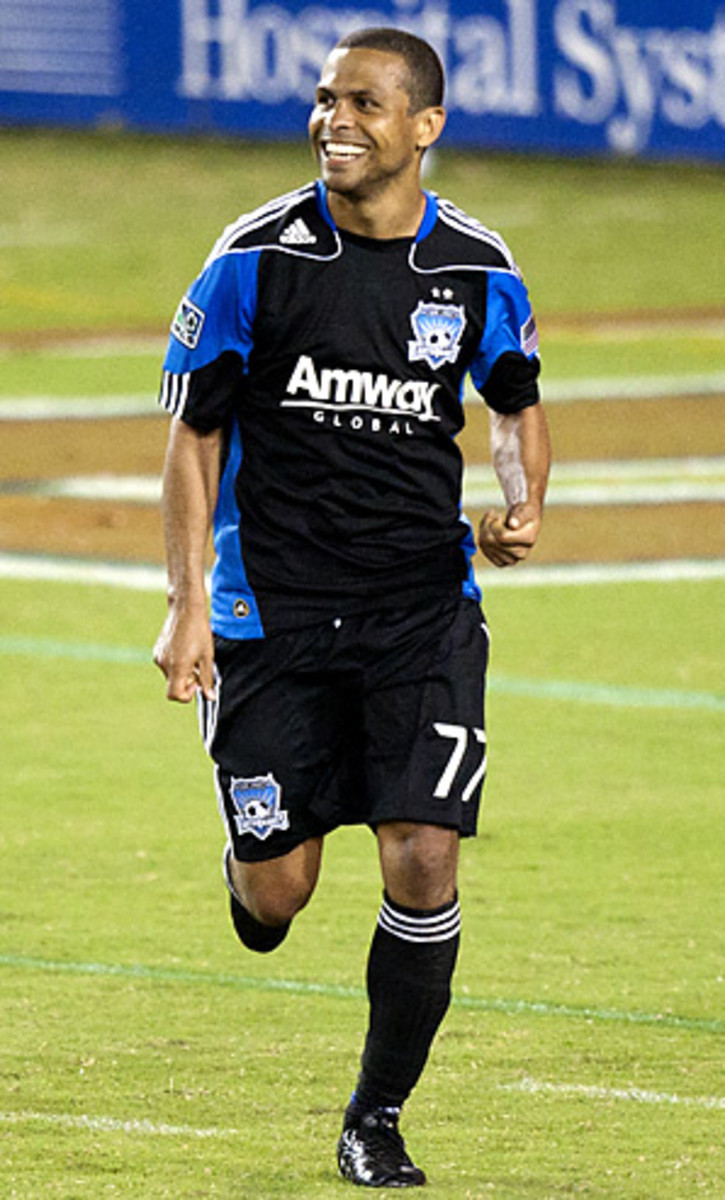Brazilian influx into MLS increases
Ask a Brazilian soccer player to pass a size 7 ball through a croquet wicket and the impossible would prove not only possible but also astounding.
The technical skills of the Brazilian soccer player have grown into the stuff of legend or mythology even. Clearly, any developing league placing an order for international players would want to employ as many Brazilians as possible.
In an MLS first, Brazil has the most players (16) among the 59 foreign countries represented in the league. According to MLS officials and Chivas USA's Paulo Nagamura, factors such as quality of living, an improving quality of play and stability among clubs are leading more Brazilian and South American players into MLS.
This represents a key developmental shift from the early years in MLS when Caribbean, Central American or second-tier European nations accounted for the majority of foreign talent.
Nagamura, 27, turned pro in Brazil, traveled to England's famed Arsenal club and ultimately landed in MLS in 2005 with the Los Angeles Galaxy.
"For me, it was the opportunity when I left England," Nagamura said. "It was a great opportunity to join MLS. I didn't know too much but I knew it was growing up. It was a new league, maybe 10 years old, but I'd heard a lot of good things."
Of course, once Nagamura arrived, he took to the California climate and lifestyle, while the comforts and standard of living suit his family.
Nelson Rodriguez, MLS' executive vice president of competition, technical and game operations, cited three factors for the influx of Brazilian talent.
"First, the league just in general is at such a different place," Rodriguez said. "Obviously, now we are a league with a much different international profile. It is widely accepted that there are world-class players and at the very least we are a league on the rise. There is more of an attraction for particularly younger players that are unable to break free of the clutter in their own country's leagues."
The second factor has been the growth in player salaries, which Rodriguez said are competitive with clubs in South America. He also said the guarantee of pay check delivery on the 15th and last day of the month is a welcome dose of stability for players who aren't always certain when the eagle will fly with other clubs or leagues.
"Last, since our league is more settled, there is greater transparency and a great understanding of the rules," Rodriguez said. "Because we're not changing the rules all the time, there's become greater flexibility, more autonomy for the clubs to make their own decisions in scouting and recruitment."
However, not every Brazilian is the right fit in MLS. Branco probably had more red cards than goals during his stint with the MetroStars in 1997. Another national-teamer, juggling freestyle master Denilson, failed miserably during his brief yet expensive stint as FC Dallas' lone designated player in 2007.
San Jose general manager John Doyle said finding a Brazilian soccer player is simple but finding the right Brazilian presents the challenge. The Earthquakes employ Eduardo, Geovanni and Andre Luiz on their 25-man roster.
"They have to want to be here. They have to take it seriously and not mess around," said Doyle, who said the Quakes found those qualities in Luiz, who then helped bring in Eduardo.
Doyle told a story about Geovanni and his approach to a new country. When the Earthquakes signed Geovanni as their first designated player, it was immediately assumed he'd want the coveted No. 10 shirt. (He did.) He asked ahead of his arrival, only to discover Arturo Alvarez already held the 10 shirt. Geovanni then asked if someone wore the No. 7, which belonged to Khari Stephenson. So, wanting to show respect for his new teammates, the former Barcelona man chose 77.
This type of attitude that Rodriguez said helps any foreign player in making the adjustment to a new culture.
"I think that in order to be successful, and this probably applies to any profession when it comes to moving, you must assimilate to some degree," Rodriguez said. "It's very, very difficult not to acclimate to the local customs or language. Sporting-wise, you have to assimilate a bit. ... Successful assimilation is important but it doesn't have to be a one-way street. A player doesn't have to surrender 100 percent of their individuality or history."
Rodriguez said the influx of Brazilian talent mirrors social changes around the shrinking world. With steady expansion on the MLS horizon -- Plesiosaurs beware -- the South American migration has just begun.
Alex, Los AngelesPaulo Araujo, Salt LakePablo Campos, Salt LakeEduardo, San JoseFred, PhiladelphiaGeovanni, San JoseJackson Goncalves, DallasBruno Guarda, DallasJuninho, Los AngelesLeonardo, Los AngelesRoberto Linck, New EnglandAndre Luiz, San JoseStefani Miglioranzi, PhiladelphiaPaulo Nagamura, CD Chivas USAMaicon Santos, TorontoMarcelo Saragosa, CD Chivas USA





